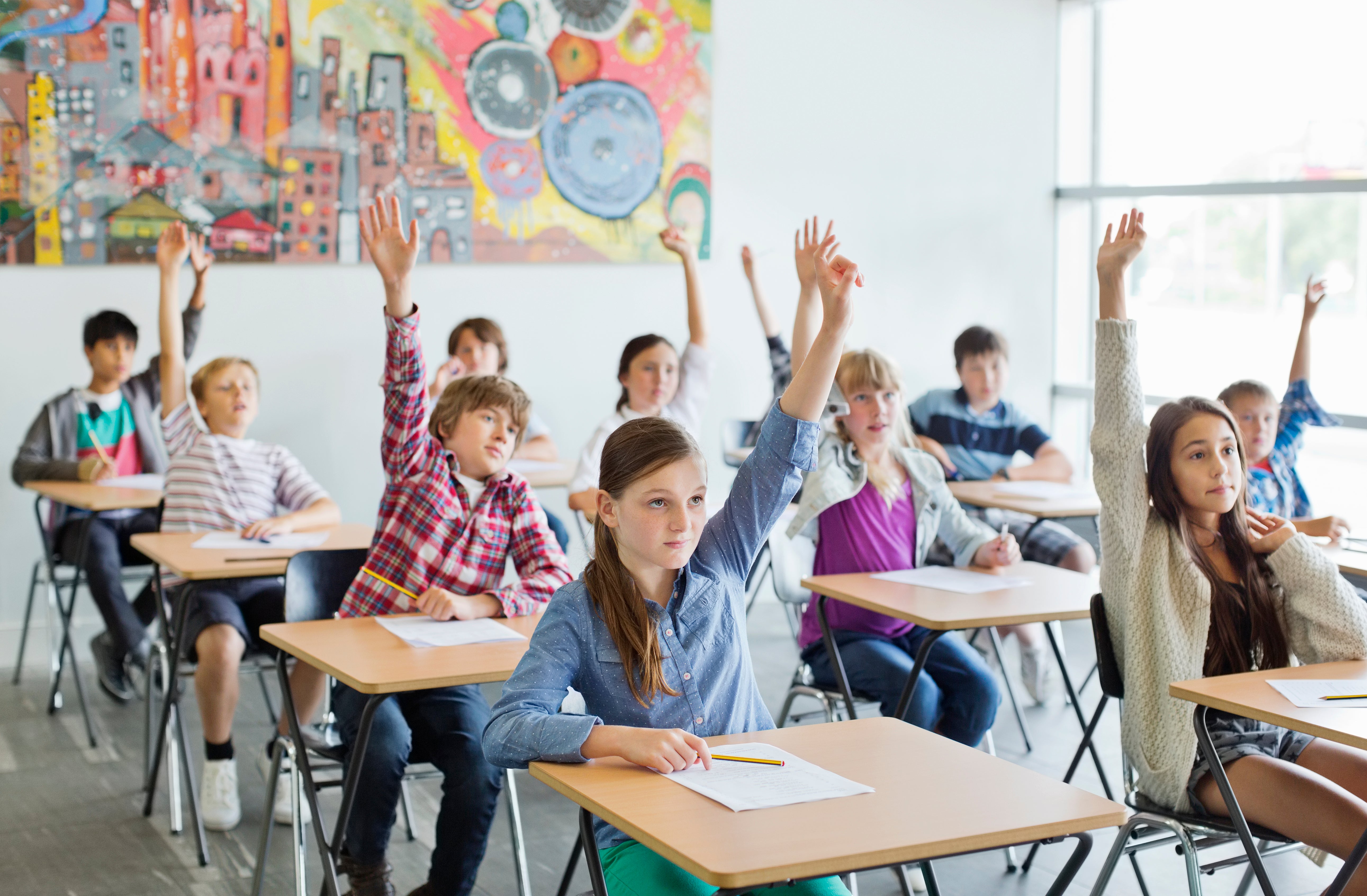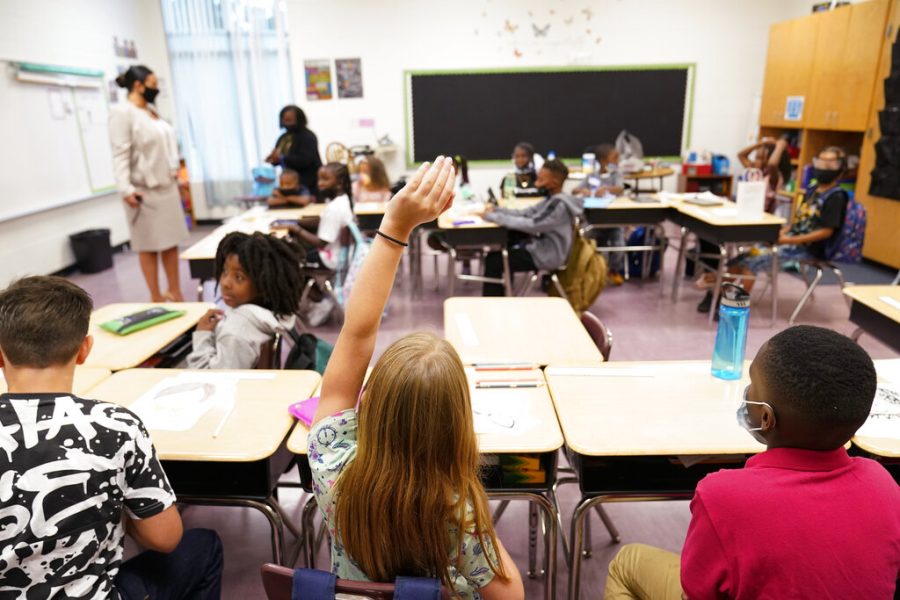Check Out the Difficulties Facing Our Community: Save Temecula Schools
Check Out the Difficulties Facing Our Community: Save Temecula Schools
Blog Article
Recognizing the Significance of Colleges in Youngster Growth and Community Development
Schools' engagement with regional areas through service-learning campaigns reinforces the bond between family members and academic organizations. This symbiotic partnership underscores the importance of colleges in nurturing energetic citizenship and long-lasting understanding habits.
Academic Accomplishment
Academic achievement functions as a foundation of kid advancement, offering the structure whereupon future discovering and success are constructed. Colleges play a critical function in fostering this scholastic growth, supplying organized settings where kids can acquire crucial knowledge and cognitive skills. Standard curricula ensure that trainees gain effectiveness in core subjects such as maths, scientific research, and language arts, which are critical for both greater education and specialist opportunities.
Along with giving fundamental academic abilities, colleges likewise grow crucial thinking, problem-solving capacities, and intellectual curiosity. These cognitive proficiencies are important for navigating complicated real-world situations and adapting to the ever-evolving needs of the contemporary workplace. Teachers, as facilitators of discovering, utilize diverse pedagogical approaches to deal with varied discovering designs, thereby taking full advantage of individual pupil possibility.
Furthermore, scholastic success is closely connected to self-worth and inspiration. Children that experience scholastic success are much more likely to establish a positive self-concept and a long-lasting interest for knowing. Institutions likewise offer different resources, such as collections and modern technology, which even more improve the academic experience and prepare trainees for a highly advanced society.
Social Skill Development
Beyond scholastic accomplishment, the function of institutions in social skill advancement is essential. Schools work as a main location for kids to find out and exercise crucial social skills such as problem, participation, and interaction resolution. In the organized environment of a classroom, students communicate with peers, teachers, and various other institution staff, offering numerous opportunities to develop these essential abilities.
Effective social ability advancement in schools is promoted with group tasks, joint jobs, and extracurricular programs. These interactions aid students understand social standards, develop empathy, and promote a feeling of community. Group jobs teach trainees how to function together towards an usual goal, pay attention to different perspectives, and browse disputes constructively.

The growing of social abilities throughout school years lays a structure for future individual and professional relationships. Save Temecula Schools. As pupils mature, the capability to successfully collaborate and interact becomes increasingly essential, highlighting the institution's critical role in all natural kid advancement
Direct Exposure to Variety
Exposure to variety in colleges is basic to fostering a comprehensive attitude and widening pupils' viewpoints. Schools function as a microcosm of the wider culture, and encountering varied societies, languages, and socioeconomic histories within this setting outfits pupils with essential skills for browsing a significantly globalized globe. This exposure motivates compassion, lowers bias, and promotes mutual regard amongst peers.
Study suggests that pupils who communicate with peers from diverse histories exhibit far better analytic skills and creative thinking. This understanding of diversity prepares pupils for future workplaces that value modern competence - Save Temecula Schools.

Area Engagement
The benefits of diverse classrooms extend beyond the college wall surfaces, cultivating a solid feeling of area engagement among students. website link By interacting with peers from various social, socioeconomic, and ethnic backgrounds, students gain a broader perspective and a recognition for variety. This direct exposure urges them to come to be energetic residents that agree to add positively to their neighborhoods.
Institutions that stress area interaction frequently integrate service-learning jobs, which permit trainees to attend to real-world troubles while using academic skills. These tasks not only boost pupils' understanding of their coursework however likewise instill a sense of obligation and compassion. Partnerships between institutions and regional companies give students with chances to participate in area events, further solidifying their role as positive community participants - Save Temecula Schools.
Furthermore, adult and area involvement in schools reinforces the bond between schools and the neighborhoods they serve. When colleges open their doors to community occasions, workshops, and volunteer opportunities, they produce a joint atmosphere that benefits all stakeholders. This common support system ensures that students obtain alternative advancement, preparing them to come to be well-shaped individuals that value and contribute to their communities. Through these initiatives, colleges play an essential duty in nurturing community involvement and promoting social development.
Lifelong Learning Routines
Creating long-lasting understanding routines is necessary for a kid's continual growth and adaptability in an ever-changing world. Schools play a crucial duty in instilling these routines by creating an environment that promotes inquisitiveness, vital reasoning, and a love for understanding. Through extracurricular activities and varied educational programs, teachers page encourage students to explore different topics, examine details critically, and apply their learning to real-world situations.

Additionally, schools offer an organized environment where children can create self-control and time management skills, both of which are crucial for constant knowing. By stressing the value of establishing objectives, reviewing progress, and adjusting techniques, universities prepare students to navigate the complexities of adult life, guaranteeing they continue to be long-lasting students and contributors to culture.
Final Thought
In final thought, schools are vital in cultivating youngster growth and area development by giving settings for scholastic success, social ability growth, and direct exposure to diversity. With collective tasks and communications, institutions improve crucial thinking, compassion, and interaction skills. Community engagement initiatives better strengthen the bond in between local areas and academic institutions. Inevitably, schools cultivate long-lasting discovering practices, furnishing people with the necessary knowledge and abilities to add positively to society.
In the organized atmosphere of a classroom, pupils communicate with peers, educators, and various other institution personnel, offering various possibilities to develop these crucial Source abilities.
In significance, exposure to variety within schools not only enhances specific pupils yet also reinforces the social material of the area as a whole.
The benefits of diverse class prolong beyond the institution walls, promoting a solid feeling of community involvement amongst students.Schools that highlight community involvement frequently include service-learning projects, which permit trainees to attend to real-world problems while using scholastic skills. Partnerships between schools and regional organizations supply pupils with opportunities to participate in neighborhood occasions, further strengthening their role as aggressive area members.
Report this page